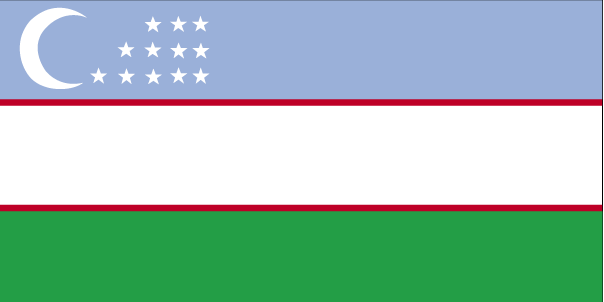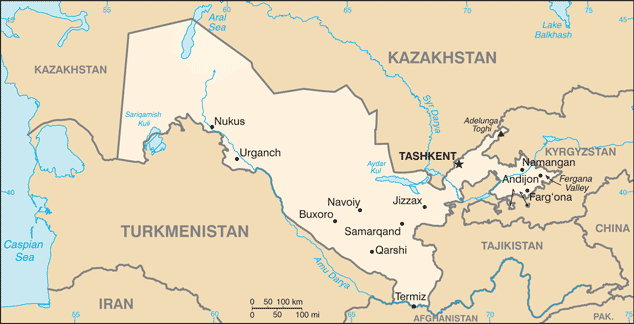Investing in Uzbekistan


Uzbekistan is a dry, landlocked country; 11% of the land is intensely cultivated, in irrigated river valleys. More than 60% of the population lives in densely populated rural communities. Export of hydrocarbons, including natural gas and petroleum, provided about 40% of foreign exchange earnings in 2009. Other major export earners include gold and cotton. Uzbekistan is now the world's second-largest cotton exporter and fifth largest producer; it has come under increasing international criticism for the use of child labor in its annual cotton harvest. Nevertheless, Uzbekistan enjoyed a bumper cotton crop in 2010 amidst record high prices. Following independence in September 1991, the government sought to prop up its Soviet-style command economy with subsidies and tight controls on production and prices. While aware of the need to improve the investment climate, the government still sponsors measures that often increase, not decrease, its control over business decisions. A sharp increase in the inequality of income distribution has hurt the lower ranks of society since independence. In 2003, the government accepted Article VIII obligations under the IMF, providing for full currency convertibility. However, strict currency controls and tightening of borders have lessened the effects of convertibility and have also led to some shortages that have further stifled economic activity. The Central Bank often delays or restricts convertibility, especially for consumer goods. Potential investment by Russia and China in Uzbekistan's gas and oil industry, as well as increased cooperation with South Korea in the realm of civil aviation, may boost growth prospects. However, decreased demand for natural gas in Europe and Russia in the wake of the global financial crisis could reduce energy-related revenues in the near term. In November 2005, Russian President Vladimir PUTIN and Uzbekistan President KARIMOV signed an "alliance," which included provisions for economic and business cooperation. Russian businesses have shown increased interest in Uzbekistan, especially in mining, telecom, and oil and gas. In 2006, Uzbekistan took steps to rejoin the Collective Security Treaty Organization (CSTO) and the Eurasian Economic Community (EurASEC), which it subsequently left in 2008, both organizations dominated by Russia. In the past Uzbek authorities had accused US and other foreign companies operating in Uzbekistan of violating Uzbek tax laws and have frozen their assets, but no new expropriations occurred in 2008-09. Instead, the Uzbek Government has actively courted several major U.S. and international corporations, offering attractive financing and tax advantages, and has landed a significant US investment in the automotive industry. Although growth slowed in 2009-10, Uzbekistan has seen few other effects from the global economic downturn, primarily due to its relative isolation from the global financial markets.
Central Bank of Uzbekistan - http://www.cbu.uz/
Countries that border Uzbekistan: Kazakhstan | Turkmenistan | Afghanistan | Tajikistan | Kyrgyzstan
Learn more:
Back to Country Investing



